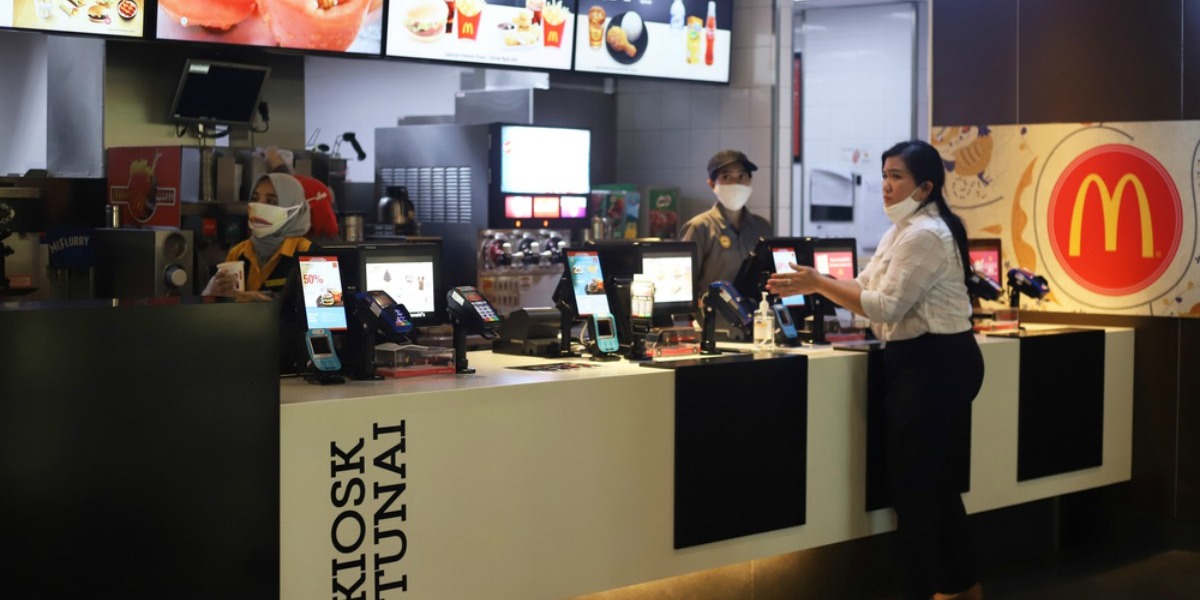
Halal poultry supplier partnering with McDonald’s Indonesia on blockchain food traceability
JAKARTA – Poultry company PT Belfoods is working with McDonald’s to introduce food traceability tools in the fast food giant’s restaurants in Indonesia.
Belfoods is a subsidiary of Jakarta Stock Exchange-listed PT Sierad Produce Tbk that is currently being rebranded as Sreeya. The company is using blockchain technology developed in partnership with agritech start-up HARA Token.
Belfoods’ managing director Dicky Saelan told Salaam Gateway the project will start with 47 McDonald’s outlets around Greater Jakarta that buy Sreeya broilers, and will be expanded as demand increases.
“We have had intense discussions with McDonald’s, from just their internal traceability needs to extending this to end customers,” said Dicky.
The launch date is still under discussion but will be in the next two months, he said.
“We will stick our halal blockchain logo and QR code at their outlets, as well as on the paper plates that they use to serve their fried chicken to their customers,” he explained.
The blockchain logo stickers will publicise the nature of the project, and customers who scan the QR code will be able to check compliance and certifications that verify the product's halal-ness throughout the production process.
Sreeya is currently focusing on an exclusive collaboration with McDonald’s for its halal blockchain educational campaign. After the collaboration ends in about a year, Sreeya will offer similar partnerships with other restaurants as well as retail outlets such as supermarkets, hypermarkets, shopping centers and malls.
Sreeya is an integrated poultry company that operates the entire value chain from feedmills to breeding, hatchery, commercial farming, slaughterhouses, and processing. It earned a revenue of 472 billion rupiah ($33 million) in 2019, a growth of 17.7% from 401 billion rupiah in 2018. Belfoods is its processed food brand that runs four business lines: nuggets, meatballs, sausages, and steam buns.
Afdhal Aliasar, director of halal product industry at Indonesia's National Sharia Economy and Finance Committee (KNEKS) told Salaam Gateway the collaboration between Sreeya and McDonald’s is expected to trigger more halal industry players to start similar campaigns to increase the transparency of their halal processes.
“We expect more halal companies to take the initiative to do such collaborations,” said Afdhal.
“As a potential next biggest halal industry player in the world, Indonesia needs this technology to be massively adopted. Blockchain offers traceability that can speed up the whole halal certification process that usually takes months or years,” he added.
Ingredients traceability and halal verification have been pain points for the industry for a long time, and these can be alleviated with blockchain, he said.
“To realise our vision of becoming a global halal hub by 2024, Indonesia needs to leapfrog and can’t just operate business as usual. Blockchain technology is one of the key elements to make our vision become a reality,” said Afdhal.
(Reporting by Yosi Winosa; Editing by Emmy Abdul Alim emmy.abdulalim@salaamgateway.com)
© SalaamGateway.com 2020 All Rights Reserved
